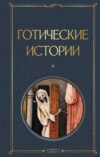Kitobni o'qish: «What Will He Do with It? — Volume 09»
BOOK IX
CHAPTER I
THE SECRET WHICH GUY DARRELL DID NOT CONFIDE TO ALBAN MORLEY.
It was a serene noonday in that melancholy interlude of the seasons when autumn has really ceased—winter not yet visibly begun. The same hired vehicle which had borne Lionel to Fawley more than five years ago, stopped at the gate of the wild umbrageous grass-land that surrounded the antique Manor-house. It had been engaged, from the nearest railway- station on the London road, by a lady, with a female companion who seemed her servant. The driver dismounted, opened the door of the vehicle, and the lady bidding him wait there till her return, and saying a few words to her companion, descended, and, drawing her cloak round her, walked on alone towards the Manor-house. At first her step was firm, and her pace quick. She was still under the excitement of the resolve in which the journey from her home had been suddenly conceived and promptly accomplished. But as the path wound on through the stillness of venerable groves, her courage began to fail her. Her feet loitered, her eyes wandered round vaguely, timidly. The scene was not new to her. As she gazed, rushingly gathered over her sorrowful shrinking mind memories of sportive happy summer days, spent in childhood amidst those turfs and shades-memories, more agitating, of the last visit (childhood then ripened into blooming youth) to the ancient dwelling which, yet concealed from view by the swells of the undulating ground and the yellow boughs of the giant trees, betrayed its site by the smoke rising thin and dim against the limpid atmosphere. She bent down her head, closing her eyes as if to shut out less the face of the landscape than the images that rose ghost-like up to people it, and sighed heavily, heavily. Now, hard by, roused from its bed amongst the fern, the doe that Darrell had tained into companionship had watched with curiosity this strange intruder on its solitary range. But at the sound of that heavy sigh, the creature, emboldened, left its halting-place, and stole close to the saddened woman, touching her very dress. Doubtless, as Darrell's companion in his most musing hours, the doe was familiarised to the sound of sighs, and associated the sound with its gentlest notions of humanity.
The lady, starting, raised her drooping lids, and met those soft dark eyes, dark and soft as her own. Round the animal's neck there was a simple collar, with a silver plate, fresh and new, evidently placed there recently; and as the creature thrust forward its head, as if for the caress of a wonted hand, the lady read the inscription. The words were in Italian, and may be construed thus: "Female, yet not faithless; fostered, yet not ungrateful." As she read, her heart so swelled, and her resolve so deserted her, that she turned as if she had received a sentence of dismissal, and went back some hasty paces. The doe followed her till she paused again, and then it went slowly down a narrow path to the left, which led to the banks of the little lake.
The lady had now recovered herself. "It is a duty, and it must be done," she muttered, and letting clown the veil she had raised on entering the demesne, she hurried on, not retracing her steps in the same path, but taking that into which the doe had stricken, perhaps in the confused mistake of a mind absorbed and absent-perhaps in revived recollection of the localities, for the way thus to the house was shorter than by the weed-grown carriage-road. The lake came in view, serene and glassy; half-leafless woodlands reflected far upon its quiet waters; the doe halted, lifted its head, and sniffed the air, and, somewhat quickening its pace, vanished behind one of the hillocks clothed with brushwood, that gave so primitive and forest-like a character to the old ground. Advancing still, there now,—at her right hand, grew out of the landscape the noble turrets of the unfinished pile; and, close at her left, under a gnarled fantastic thorn-tree, the still lake at his feet reflecting his stiller shadow, reclined Guy Darrell, the doe nestled at his side.
So unexpected this sight—he, whom she came to seek yet feared to see, so close upon her way—the lady uttered a faint but sharp cry, and Darrell sprang to his feet. She stood before him, veiled, mantled, bending as a suppliant.
"Avaunt!" he faltered wildly. "Is this a spirit my own black solitude conjures up—or is it a delusion, a dream?" It is I—I!—the Caroline dear to you once, if detested now! Forgive me! Not for myself I come." She flung back her veil-her eyes pleadingly sought his.
"So," said Darrell, gathering his arms round his breast in the gesture peculiar to him when seeking either to calm a more turbulent movement, or to confirm a sterner resolution of his heart—"so! Caroline, Marchioness of Montfort, we are then fated to meet face to face at last! I understand—Lionel Haughton sent, or showed to you, my letter?"
"Oh! Mr. Darrell, how could you have the heart to write in such terms of one who—"
"One who had taken the heart from my bosom and trampled it into the mire. True, fribbles will say, 'Fie! the vocabulary of fine gentlemen has no harsh terms for women.' Gallants, to whom love is pastime, leave or are left with elegant sorrow and courtly bows. Madam, I was never such airy gallant. I am but a man unhappily in earnest—a man who placed in those hands his life of life—who said to you, while yet in his prime, 'There is my future, take it, till it vanish out of earth!" You have made that life substanceless as a ghost—that future barren as the grave. And when you dare force yourself again upon my way, and would dictate laws to my very hearth—if I speak as a man what plain men must feel—'Oh! Mr. Darrell,' says your injured ladyship, 'how can you have the heart?' Woman! were you not false as the falsest? Falsehood has no dignity to awe rebuke—falsehood no privilege of sex."
"Darrell—Darrell—Darrell—spare me, spare me! I have been so punished —I am so miserable!"
"You!—punished!—What! you sold yourself to youth, and sleek looks, and grand titles, and the flattery of a world; and your rose-leaves were crumpled in the gorgeous marriage-bed. Adequate punishment!—a crumpled rose-leaf! True, the man was a—but why should I speak ill of him? It was he who was punished, if, accepting his rank, you recognised in himself a nothingness that you could neither love nor honour. False and ungrateful alike to the man you chose—to the man you forsook! And now you have buried one, and you have schemed to degrade the other."
"Degrade!—Oh! it is that charge which has stung me to the quick. All the others I deserve. But that charge! Listen—you shall listen."
"I stand here resigned to do so. Say all you will now, for it is the last time on earth I lend my ears to your voice."
"Be it so—the last time." She paused to recover speech, collect thoughts, gain strength; and strange though it may seem to those who have never loved, amidst all her grief and humiliation there was a fearful delight in that presence from which she had been exiled since her youth —nay, delight unaccountable to herself, even in that rough, vehement, bitter tempest of reproach, for an instinct told her that there would have been no hatred in the language had no love been lingering in the soul.
"Speak," said Darrell gently, softened, despite himself, by her evident struggle to control emotion.
Twice she began-twice voice failed her. At last her words came forth audibly. She began with her plea for Lionel and Sophy, and gathered boldness by her zeal on their behalf. She proceeded to vindicate her own motives-to acquit herself of his harsh charge. She scheme for his degradation! She had been too carried away by her desire to promote his happiness—to guard him from the possibility of a self-reproach. At first he listened to her with haughty calmness; merely saying, in reference to Sophy and Lionel, "I have nothing to add or to alter in the resolution I have communicated to Lionel." But when she thus insensibly mingled their cause with her own, his impatience broke out. "My happiness? Oh! well have you proved the sincerity with which you schemed for that! Save me from self-reproach—me! Has Lady Montfort so wholly forgotten that she was once Caroline Lyndsay that she can assume the part of a warning angel against the terrors of self-reproach?"
"Ah!" she murmured faintly, "can you suppose, however fickle and thankless I may seem to you—"
"Seem!" he repeated.
"Seem!" she said again, but meekly—"seem, and seem justly;—yet can you suppose that when I became free to utter my remorse—to speak of gratitude, of reverence—I was insincere? Darrell, Darrell, you cannot think so! That letter which reached you abroad nearly a year ago, in which I laid my pride of woman at your feet, as I lay it now in coming here—that letter, in which I asked if it were impossible for you to pardon, too late for me to atone—was written on my knees. It was the outburst of my very heart. Nay, nay, hear me out. Do not imagine that I would again obtrude a hope so contemptuously crushed!" (a deep blush came over her cheek.) "I blame you not, nor, let me say it, did your severity bring that shame which I might have justly felt had I so written to any man on earth but you—you, so reverenced from my infancy, that—"
"Ay," interrupted Darrell fiercely, "ay, do not fear that I should misconceive you; you would not so have addressed the young, the fair, the happy. No! you, proud beauty, with hosts, no doubt, of supplicating wooers, would have thrust that hand into the flames before it wrote to a young man, loved as the young are loved, what without shame it wrote to the old man, reverenced as the old are reverenced! But my heart is not old, and your boasted reverence was a mocking insult. Your letter, torn to pieces, was returned to you without a word—insult for insult! You felt no shame that I should so rudely reject your pity. Why should you? Rejected pity is not rejected love. The man was not less old because he was not reconciled to age."
This construction of her tender penitence—this explanation of his bitter scorn—took Caroline Montfort wholly by surprise. From what writhing agonies of lacerated self-love came that pride which was but self- depreciation? It was a glimpse into the deeper rents of his charred and desolate being which increased at once her yearning affection and her passionate despair. Vainly she tried to utter the feelings that crowded upon her!—vainly, vainly! Woman can murmur, "I have injured you— forgive!" when she cannot exclaim, "You disdain me, but love!" Vainly, vainly her bosom heaved and her lips moved under the awe of his flashing eyes and the grandeur of his indignant frown.
"Ah!" he resumed, pursuing his own thoughts with a sombre intensity of passion that rendered him almost unconscious of her presence—"Ah! I said to myself, 'Oh, she believes that she has been so mourned and missed that my soul would spring back to her false smile; that I could be so base a slave to my senses as to pardon the traitress because her face was fair enough to haunt my dreams. She dupes herself; she is no necessity to my existence—I have wrenched it from her power years, long years ago! I will show her, since again she deigns to remember me, that I am not so old as to be grateful for the leavings of a heart.
"I will love another—I will be beloved. She shall not say with secret triumph, 'The old man dotes in rejecting me'"
"Darrell, Darrel—unjus—cruel kill me rather than talk thus!"
He heeded not her cry. His words rolled on in that wonderful, varying music which, whether in tenderness or in wrath, gave to his voice a magical power—fascinating, hushing, overmastering human souls.
"But—you have the triumph; see, I am still alone! I sought the world of the young—the marriage mart of the Beautiful once more. Alas! if my eye was captured for a moment, it was by something that reminded me of you. I saw a faultless face, radiant with its virgin blush; moved to it, I drew near-sighing, turned away; it was not you! I heard the silvery laugh of a life fresh as an April morn. 'Hark!' I said, 'is not that the sweet mirth-note at which all my cares were dispelled? Listening, I forgot my weight of years. Why? because listening, I remembered you. 'Heed not the treacherous blush and the beguiling laugh,' whispered Prudence. 'Seek in congenial mind a calm companion to thine own.' Mind! O frigid pedantry! Mind!—had not yours been a volume open to my eyes; in every page, methought, some lovely poet-truth never revealed to human sense before! No; you had killed to me all womanhood! Woo another!—wed another! 'Hush,' I said, 'it shall be. Eighteen years since we parted— seeing her not, she remains eternally the same! Seeing her again, the very change that time must have brought will cure. I saw you—all the past rushed back in that stolen moment. I fled—never more to dream that I can shake off the curse of memory—blent with each drop of my blood— woven with each tissue-throbbing in each nerve-bone of my bone, and flesh of my flesh—poison-root from which every thought buds to wither—the curse to have loved and to have trusted you!"




















